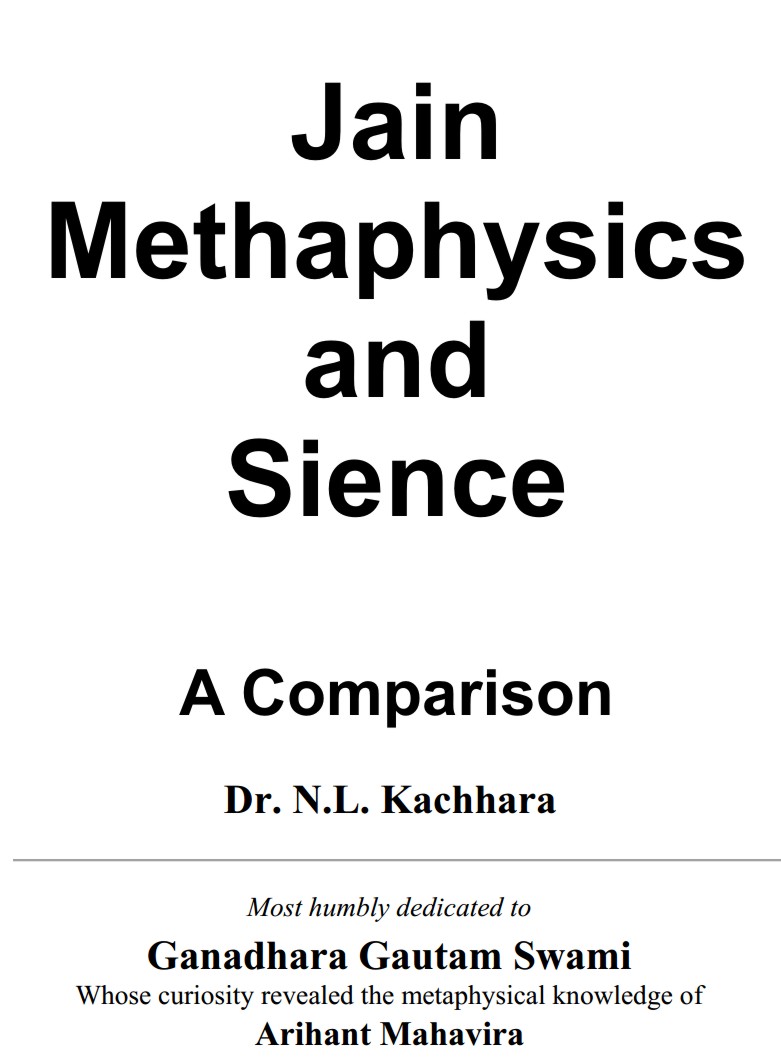The canonical literature, in general, and the Bhagwati sutra in particular, defines paramanu in various ways from different angles. It is the basis (ultimate constituent) of physical universe. It is indivisible, indestructible, impenetrable, incombustible and imperceptible to sense organs. It cannot be split or destroyed by any means whatsoever. Paramanu is a true point. It has no halfportion, no middle portion and no pradesa. It has no length, no breadth and no depth. It is dimensionless. It is truly infitesimal.
Paramanu is the pure form of pudgala and possesses the intrinsic qualities of touch, taste, odour and colour. A paramanu has one of the five primary colours, one of the two smells, one of the five tastes, two of the four primary touch i.e. either hot or cold and either smooth (positive change) or rough (negative charge). Although the four qualities are permanently possessed by a paramanu, the intensity of the qualities does not remain constant. A paramanu possessing one unit of blackness at any moment may sometimes later possess two, three or many units of blackness. In the free state the mutation is only in the intensities of colour, etc. i.e. x unit black changes to y unit black but black does not become white or red etc., but during and after union with others, change in colour etc., may also take place. It follows from this that at any given moment there would be paramanus with different intensities of blackness etc. In the same way there would be paramanus with various degrees of other qualities.
A single free paramanu is invisible not only to the naked eyes but also to any other physical instrument. Its existence is to be inferred by the collective action and reaction of infinite paramanus. Only the omniscient (kevalajnani) and those who possess superlative visual intuition (paramavadhi jnani) can perceive and cognize the nature of a free paramanu.
The term paramanu is the short form of dravya paramanu or paramanu- pudgala. The Bhagavati sutra enumerates four types of paramanus- indivisible units.
- Dravya - paramanu or pudgala-paramanu- The indivisible unit of pudgala substance.
- Ksetra paramanu - The indivisible unit of space i.e. space - point or akasa - pradesa (space occupied by one pudgala paramanu).
- Kala paramanu - The individual unit of time called samaya.
- Bhava paramanu - The indivisible unit or quantum of intensity of sensuous qualities, viz. colour, odour, taste and touch.
Thus, paramanu is the direct unit of physical substance (pudgala) and also the indirect unit of space, time and modification. The quantitative difference in matter- space - time as well as the qualitative difference in physical objects may ultimately be traced to constitution of paramanu. Thus, being the constituent element of physical composite bodies, it may be considered to be the determinant of the difference of aggregates, and for the same reason, it is also their substantial cause. By its own motion (vibration, oscillation etc.) it becomes the measure of time unit 'samaya'.
On ultimate analysis, the whole physical universe is paramanu. The paramanus have the innate capacity of uniting with one another to form composite bodies. The composite bodies are liable to the process of disintegration and the united paramanus may become free paramanus and thus the process of association and dissociation goes on eternally. The paramanu is the ultimate cause 'karan paramanu' - as well as the ultimate end - product - 'antya paramanu'.
Paramanu by itself is not kaya (extensive body), because it is a singularity. However, when united with other paramanu in a composite body, it is a constituent of kaya. Paramanu never loses its identity even though it participates in the union to produce composite bodies. Thus not a single paramanu is destroyed nor a new one created. The total number of paramanu is eternally the same. A composite body of infinite number of paramanus may also occupy a single space -point. There is not a single space-point in the whole of cosmos, which is not occupied by paramanus. It cannot, however, cross the boundary of loka since dharma is absent in the aloka. In its free state, the paramanu does not interact with soul and, therefore, serves no useful purpose.
 Dr. N.L. Kachhara
Dr. N.L. Kachhara
